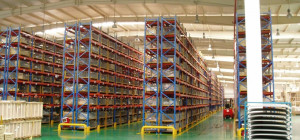 On the hunt for scientific equipment, like x-ray inspection systems or other laboratory supplies? First, you have to know what type of laboratory you're stocking.
On the hunt for scientific equipment, like x-ray inspection systems or other laboratory supplies? First, you have to know what type of laboratory you're stocking.
There are various types of laboratories. Some are used for forensics, while others are used for medical analysis. Additionally, there are many labs that are used for research and development. Different kinds of testing require various types of equipment. However, there are a few items that are standard in almost all laboratories, like computers, microscopes, glassware, and labeling supplies.
Modern laboratories have advanced computers. Tasks that were once done manually can now be done on a computer, which has streamlined many processes. While most labs have a computer, not all of the computers are alike. The computer's software will coincide with the kind of work being done in the laboratory.
While most labs have microscopes, the kind of microscope will be based on the work being performed. Some microscopes are much stronger than others. For example, if you're analyzing cells, you'll need an extremely powerful microscope. Most laboratories are outfitted with basic glassware, including vials, beakers, and flasks. There are a ton of uses for these supplies, including measuring, mixing, and boiling chemicals, blood, or other specimens. Both standard and specialized glassware is available for purchase.
It's extremely important to label everything in a laboratory. This is the only way to make sure everything is both easy to find and safe. Labels, temporary markers, permanent markers, and crayon markers are just a few of the labeling supplies that every lab should have.
Other common laboratory supplies include hot plates, Bunsen burners, paper supplies, and safety items. Hot plates and Bunsen burners are common in laboratories because they provide heat sources. While a hot plate runs on electricity and offers a heated surface, a Bunsen burner uses gas and has an open flame.
The paper items found in most laboratories may seem insignificant, but they actually have great purpose. For example, filter papers help separate liquids and solids. Also, small strips of litmus paper help to identify substances and test their acidity. When the paper changes color, scientists can often figure out what the substance is.
Lastly, safety is extremely important in laboratories. Many of the items in a lab may be dangerous, especially when handled incorrectly. Fire extinguishers and protective clothing are only a few of the safety items found in most labs.







